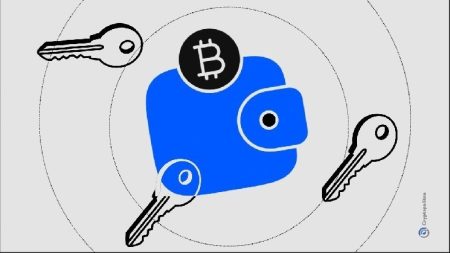Thailand’s flirtation with cryptocurrency adoption, particularly in the tourism sector, presents a complex interplay of enthusiastic proponents and cautious regulators. Former Prime Minister Thaksin Shinawatra’s proposal for a Bitcoin pilot project in Phuket has ignited a debate about the potential benefits and risks of integrating digital currencies into the Thai economy. While industry leaders like the CEO of Gulf Binance champion the idea as a catalyst for attracting tech-savvy tourists and boosting the nation’s competitive edge, the central bank remains steadfast in its prohibition of cryptocurrency payments. This divergence of perspectives underscores the challenges inherent in navigating the evolving landscape of digital finance. The central bank’s concerns about financial stability and monetary control clash with the desire to embrace innovation and capitalize on the growing global interest in cryptocurrencies.
The allure of a Bitcoin pilot project in Phuket stems from the island’s dependence on tourism and foreign investment. Proponents argue that integrating cryptocurrency into the local economy could create a unique selling point, attracting a new wave of digitally-minded visitors and investors. By offering cryptocurrency payment options, businesses in Phuket could potentially tap into a growing market segment and streamline transactions, while tourists could benefit from the convenience and security often associated with digital currencies. This vision aligns with a broader ambition to position Thailand as a digital powerhouse, leveraging technological advancements to enhance its economic standing. However, the realization of this vision hinges on the cooperation of the central bank, which remains the ultimate arbiter of cryptocurrency adoption in the country.
The regulatory framework surrounding digital assets in Thailand further complicates the discussion. While the Securities and Exchange Commission (SEC) oversees digital assets, the central bank retains control over payment systems. This division of authority creates a potential hurdle for implementing a comprehensive cryptocurrency strategy. Unlike countries like Japan and the United States, where Bitcoin has gained acceptance as a form of payment, Thailand’s regulatory approach remains cautious and restrictive. The central bank’s historically skeptical stance towards cryptocurrency, coupled with the need to coordinate with the SEC, presents a significant challenge for proponents of the Phuket pilot project. Overcoming this regulatory inertia requires a concerted effort to address the central bank’s concerns and demonstrate the viability and safety of cryptocurrency payments within the Thai financial system.
The Bank of Thailand’s reservations about cryptocurrency adoption primarily revolve around the potential risks to financial stability and monetary policy. The decentralized nature of cryptocurrencies, coupled with their price volatility, raises concerns about potential disruptions to the established financial system. Maintaining control over monetary flow and ensuring economic stability are paramount priorities for the central bank, making it hesitant to embrace a technology perceived as potentially destabilizing. Before any significant cryptocurrency integration can occur, the central bank needs to conduct a thorough risk assessment to evaluate the potential impact on the Thai economy. This assessment will likely involve analyzing various scenarios, including the potential for money laundering, capital flight, and the impact on exchange rates. Only after these risks are adequately addressed can the central bank consider relaxing its stance on cryptocurrency payments.
Further adding to the complexity of the situation is the need for regulatory harmonization between the Bank of Thailand and the SEC. While the SEC oversees digital assets, the central bank’s authority over payment systems creates a potential conflict of jurisdiction. To effectively regulate and manage the integration of cryptocurrency into the Thai economy, these two entities need to develop a unified approach. This requires updating existing regulatory frameworks to accommodate the unique characteristics of digital currencies and establish clear guidelines for their use. The process of regulatory alignment could be time-consuming and politically challenging, potentially delaying the implementation of the Phuket pilot project and other cryptocurrency initiatives.
In conclusion, the proposal for a Bitcoin pilot project in Phuket highlights the tension between embracing innovation and maintaining financial stability in Thailand. While the potential benefits of attracting tech-savvy tourists and boosting the economy are enticing, the central bank’s concerns about the risks associated with cryptocurrency cannot be ignored. Overcoming these concerns requires a comprehensive risk assessment, regulatory harmonization between the Bank of Thailand and the SEC, and a clear demonstration of the viability and safety of cryptocurrency payments within the Thai context. Until these issues are addressed, the future of cryptocurrency adoption in Thailand remains uncertain, with the central bank holding the ultimate power to determine the pace and scope of integration. The Phuket pilot project, therefore, serves as a crucial testing ground for the nation’s approach to this rapidly evolving technology, and its success or failure will likely shape the future of digital finance in Thailand.















